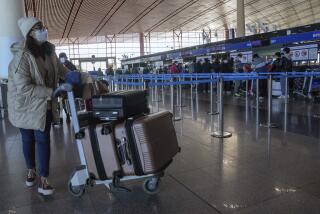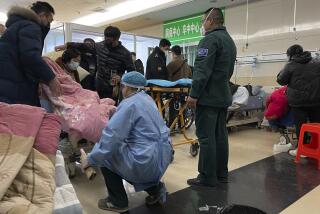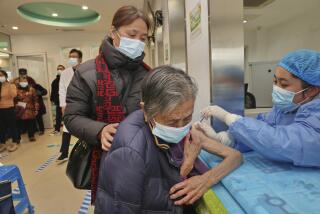Tears, fear and panic grip China as coronavirus spreads
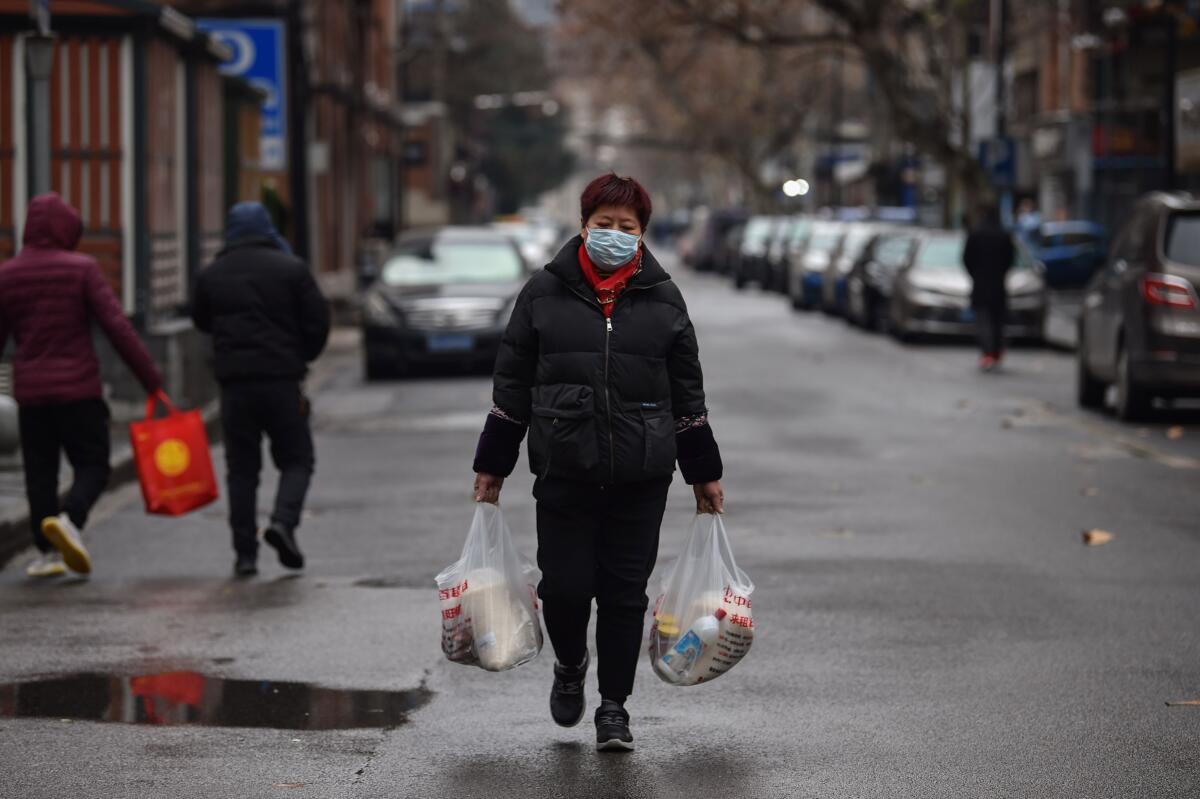
- Share via
BEIJING — The man burst out with a shout at the last second as medical workers boarded a bus headed to Wuhan: “Wang Yuehua, I love you!”
He sobbed, gasping, as his wife joined an emergency response team headed to the epicenter of the deadly new coronavirus outbreak that has killed more than 130 patients and infected about 6,000 people across China. The number of reported cases is rising at a rate of more than 1,000 a day.
A nurse patted the man on the shoulder as he lowered his head, heaving. Another woman came by and murmured to him as he cried, “I know, I know, I can’t control it.”
The nurse next to him began to weep as well, wiping her face as the bus pulled away, loaded with colleagues and loved ones venturing on a journey into perilous outbreak territory. At least 15 medical workers have been infected and one has died after treating coronavirus patients in Wuhan.
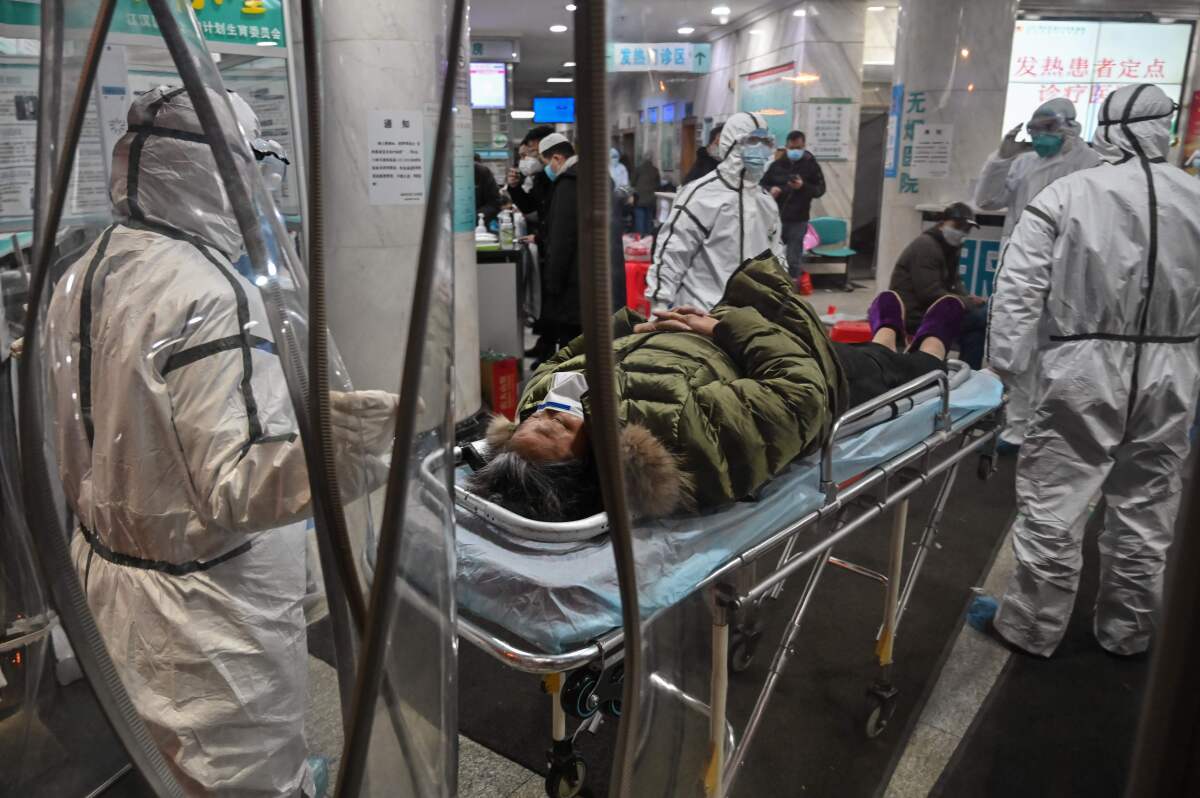
The 52-member group from Henan departed by bus Sunday, according to a Henan University report, joining more than 6,000 medical workers who’ve been dispatched from every province except Tibet and Hubei (where Wuhan is located) to relieve doctors and nurses in Wuhan.
Shared grief, suspicion and multiplying tensions have seized this nation. Since the central government takeover of China’s virus response last week, state media have broadcast a steady stream of inspirational reports about heroic Chinese people uniting to fight the unseen enemy, confident in the party’s leadership. Over and over again, the government repeats: Trust us. Be calm. Wash your hands. Stay home.
But off-screen, China’s virus war is grim. Silent cities sit in a white winter smog that blots out the sky, their empty streets contrasting with the crowded hospitals where doctors and nurses break down because they lack equipment or rooms for the patients squeezed outside their doors.
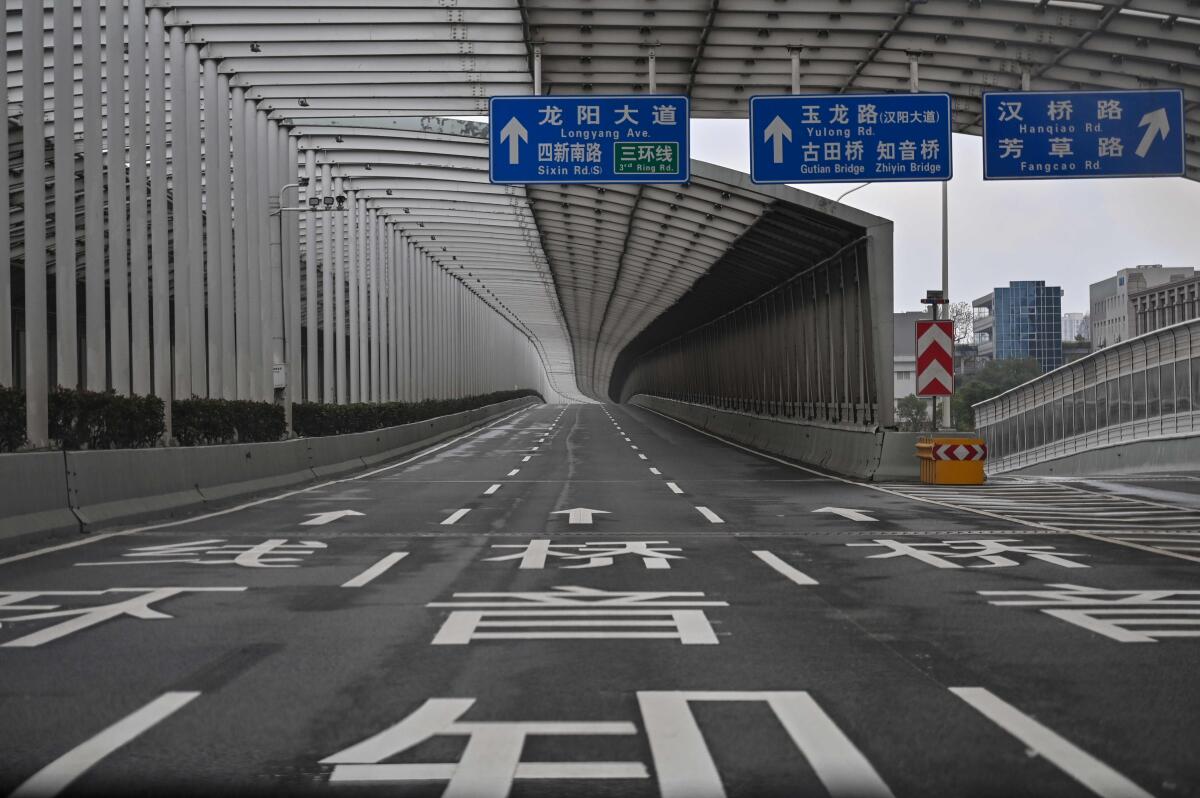
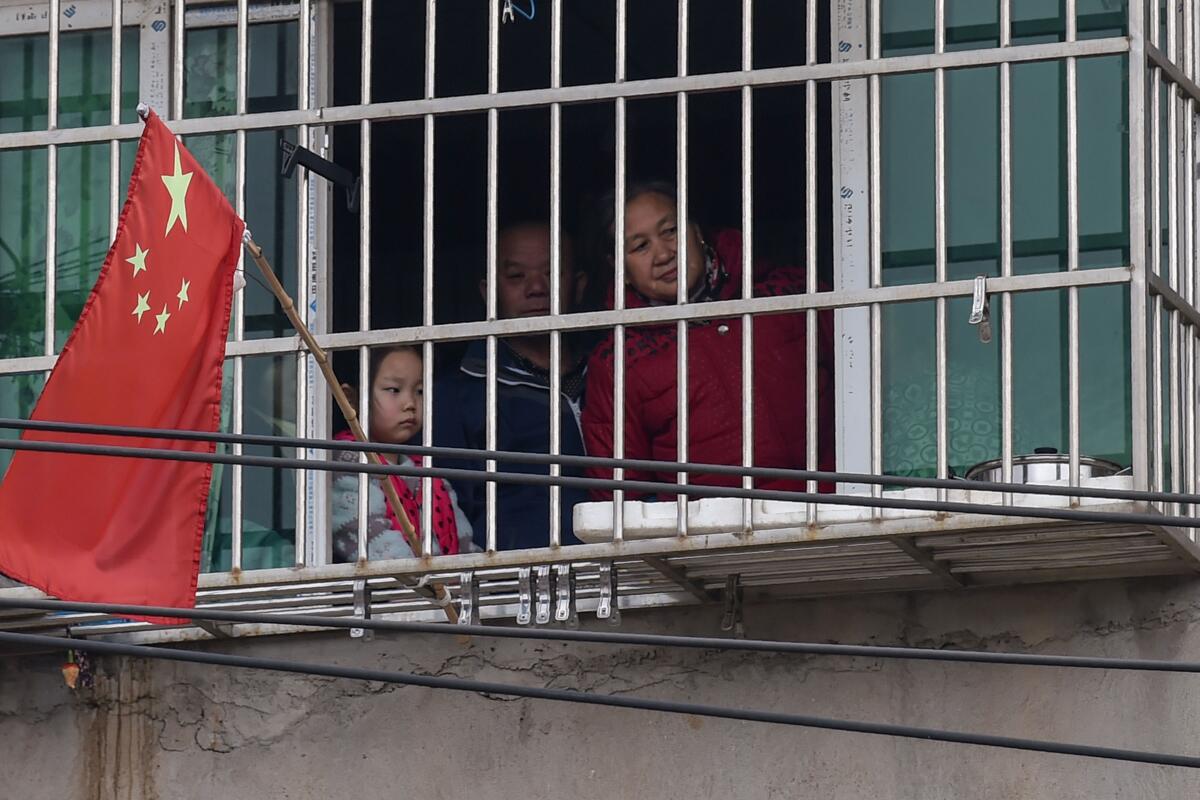
In rural areas, many villagers blockade and guard village entrances to prevent outsiders — especially Hubei people — from entering.
Online, desperate posts sprout up daily from people begging for help because sick family members are not being admitted into hospitals.
Fear lurks in the background of even healthy people’s minds, inflated by the proximity of death, fragility of loved ones and, most of all, by the unknown: where the virus comes from, how it changes, how it spreads, whether one has it or not, and whether authorities are providing the full truth. It is a country of fretful eyes peering out over surgical masks.
For those in China and especially in Wuhan, the tick-tock unease is worsened by uncertainty in what the government says, based on past experience of inaccurate reporting on death numbers and infection rates in other preventable tragedies, includingSARS and the Great Leap Forward famine.
National health commissioner Jiao Yahui said at a news briefing Wednesday in Beijing that the issue of insufficient hospital beds was a question of “great importance” and “national concern,” adding that two hospitals are under construction and should provide 2,300 new beds when they are completed in early February.
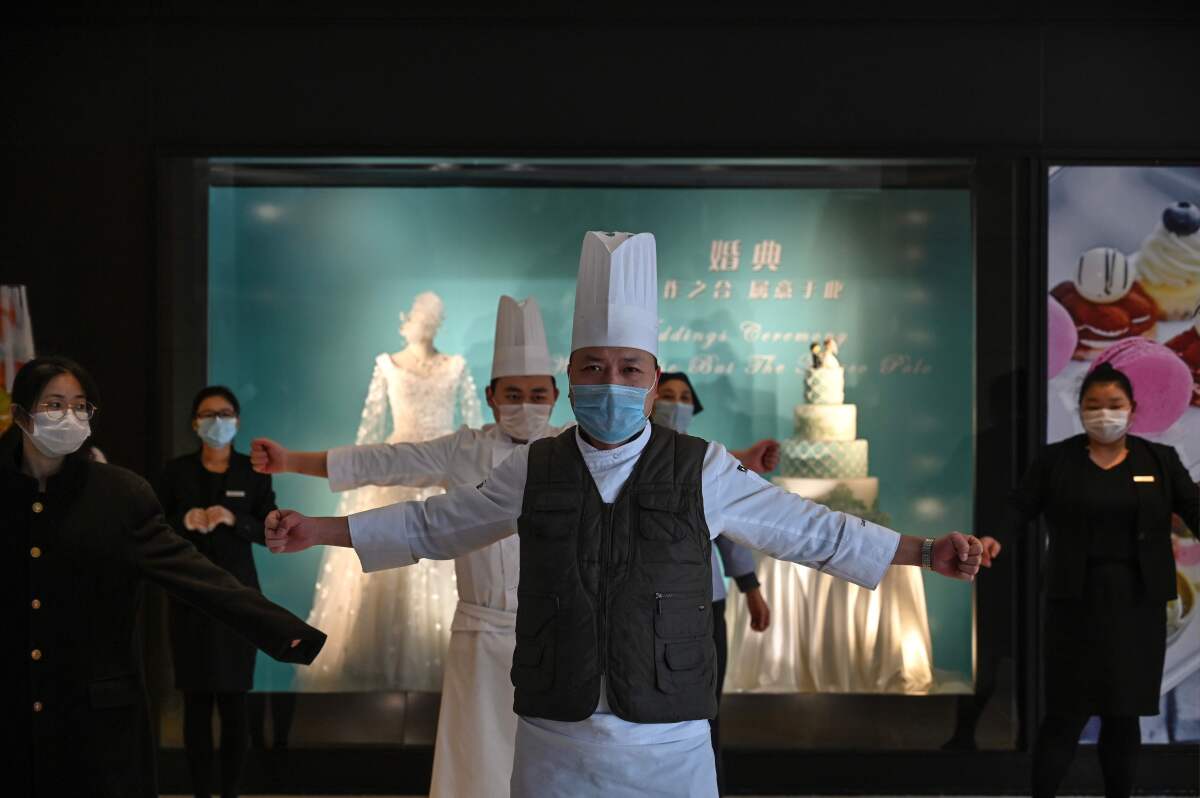
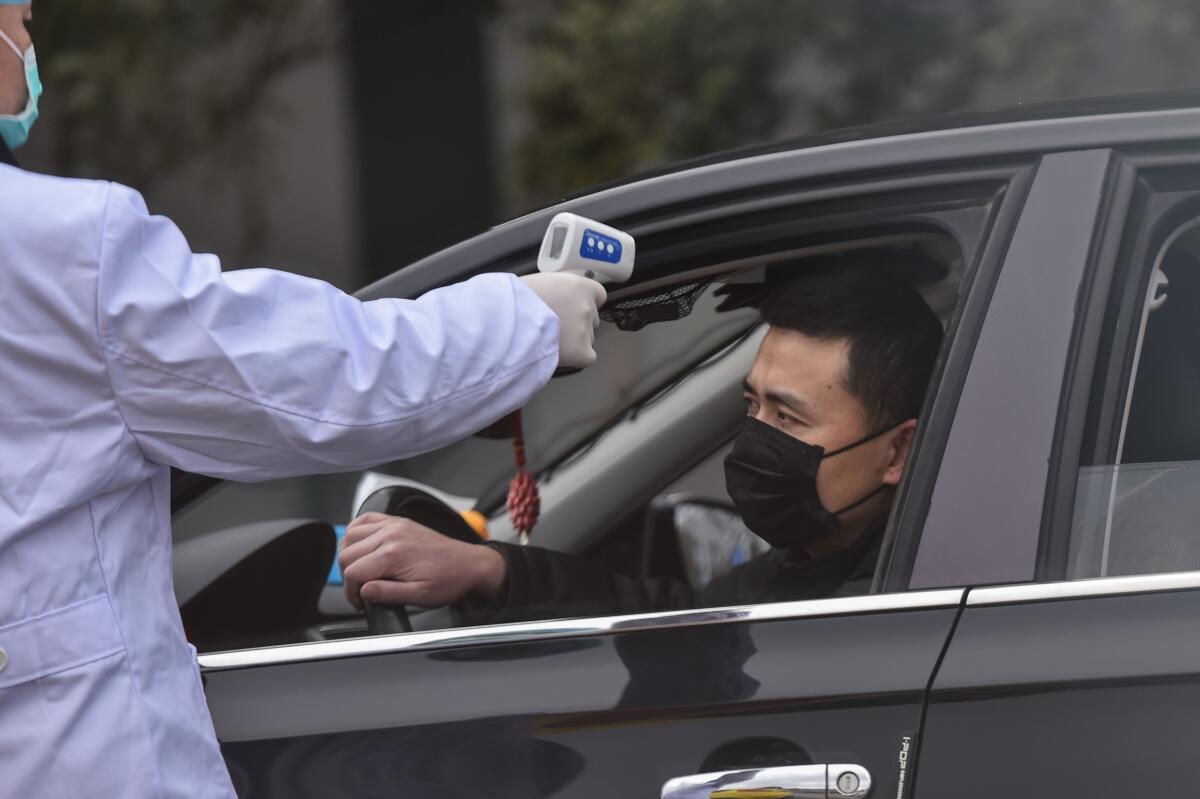
Other hospitals in Wuhan are also supposed to open up space to patients, Jiao said, providing 10,000 beds in total — “more than enough” for suspected as well as confirmed cases.
But the virus is spreading, and residents in Wuhan with sick family members say they are unable to receive diagnostic tests or secure hospital space for their relatives, even when doctors tell them they are likely infected with the new virus.
A woman in Wuhan surnamed Sun, 32, said in a phone interview that her husband, 34, has been sick since Jan. 15, first with a fever and cough, then with a lung infection that a doctor said was probably caused by the coronavirus.
“Of course we couldn’t guess it was something so bad. We didn’t know,” Sun said, adding that her husband works in Wuhan’s Hankou area, where the Huanan Seafood Market, the suspected source of the coronavirus outbreak, is located.
He’d even attended his company’s Lunar New Year banquet near that market, Sun said, when Chinese officials were still claiming that the virus was not transmissible between humans. Since then, his symptoms have escalated from high fever, coughing and fatigue to breathing problems. Sun’s parents, who live with them, have both caught fevers as well.
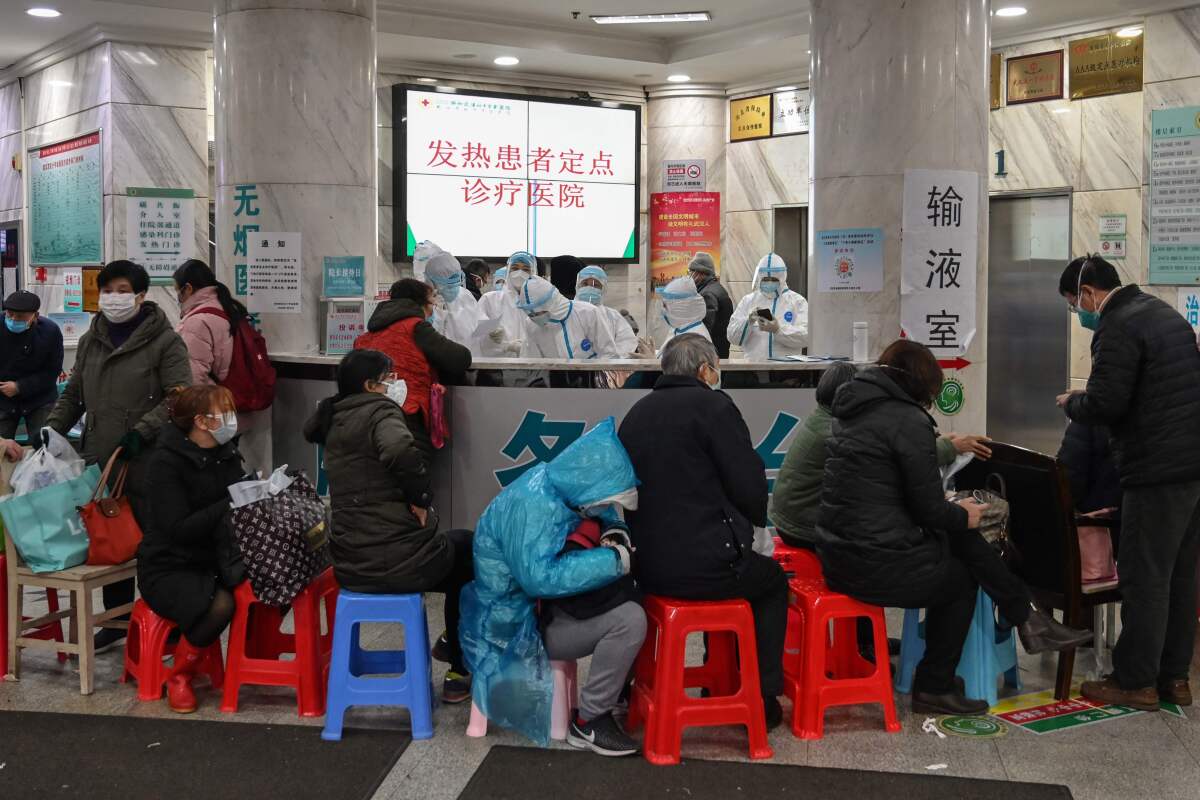
Her mother, 65, has developed a lung infection, and her father, 67, who had preexisting health problems including diabetes and high blood pressure, has a similar profile to elderly coronavirus victims who have died.
This whole time, Sun has not been able to get her family tested for the coronavirus, she said, because the doctors told her they had no test kits. Without confirmation of whether her husband has the virus, his death would not be included in the coronavirus toll.
But her priority now is just to get him into a hospital, no matter how the government wants to classify him.
Ten days ago, Sun filled out an application for her husband’s hospitalization. The city has since designated specific hospitals for suspected coronavirus patients. That means she has to register her husband with a neighborhood committee first, which then reports the name to the hospital.
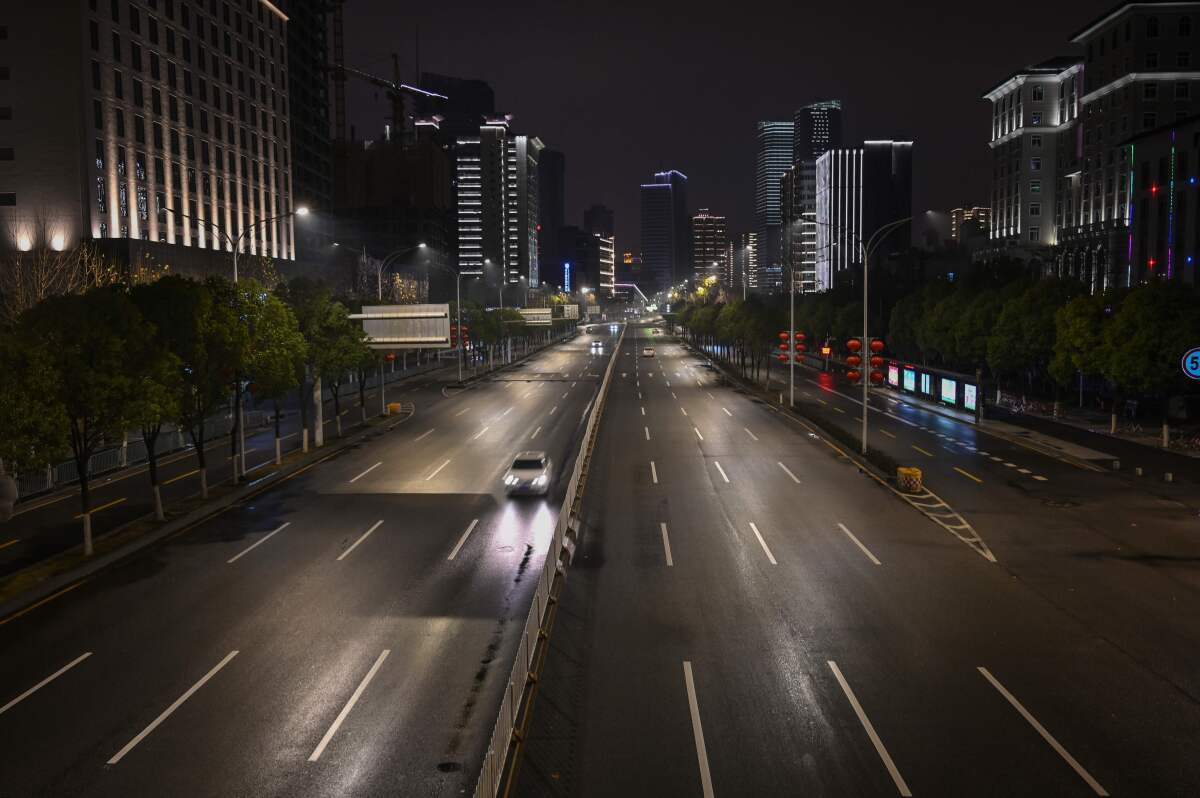
Every day is a disconcerting maze: The hospital tells Sun that her husband’s name is not on the list. She goes to the committee, which insists it reported his name. She asks the hospital, which says: no name. She goes back to the committee and repeats the cycle.
Meanwhile, her husband can’t catch his breath.
“We’ve been telling the hospital, and they say, ‘There’s nothing we can do,’” she said.
Sun said Tuesday that she’d just bought an oxygen device that aids breathing and was reading its instruction manual. Two days ago, she sent her 3-year-old daughter to her sister’s apartment, choosing to separate from her child rather than risk her getting sick.
At home, Sun self-isolates in a separate room from her stricken husband, mother and father. She asks for help online several times a day.
On Monday, her daughter started having a fever too.
Times staff writer Cindy Chang contributed to this report.
More to Read
Sign up for Essential California
The most important California stories and recommendations in your inbox every morning.
You may occasionally receive promotional content from the Los Angeles Times.
